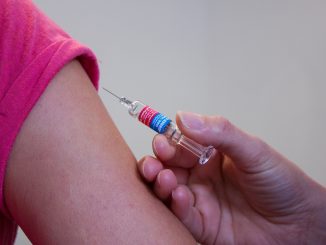
It’s been almost two decades since measles was declared eradicated in the U.S. After developing successful vaccines against the highly contagious viral infection in the ‘60s, federal and state governments began creating policies to require children to become vaccinated early on in order to avoid contracting and spreading the infection. Shockingly, despite these measures, measles is unfortunately back on the rise.
This is a serious concern. Although the infection is not deadly itself, it can lead to serious health complications that can be fatal. Before the global adoption of the measles vaccine, about 500,000 children died annually from measles-related complications internationally. The infection has been managed since then, but 2019 has seen a massive outbreak of the infection, affecting hundreds of people across the U.S.
Measles Outbreak
Before vaccines for measles became mandated, the viral infection was as common as chicken pox, affecting almost every person at some point throughout their childhood. It presents no signs for one to two weeks but peaks in contagiousness a few days before symptoms of the infection set in. This is one reason it spreads so extensively.
Some of the many symptoms of measles include:
- Fever of about 101 degrees Fahrenheit
- Sore throat
- Dry cough
- Runny nose
- Watery eyes or conjunctivitis
- Koplik’s spots, which are small white and blue spots along the inside of the cheek
- A red splotchy rash that begins on the face before spreading to the rest of the body
Measles usually lasts about two weeks before the body is able to rid itself of the infection. It cannot be treated with antibiotics, which is another reason the infection is so dangerous. If your body is unable to fight it off, the infection causes complications that, in extreme cases, can cause deafness, blindness, or even death.
Due to the severity and contagiousness of the infection, the U.S. made a national commitment that the country would no longer experience high rates of measles by 2000. To accomplish this goal, federal and state governments began to require that children be vaccinated before being allowed to attend public or private schools. However, they created exemptions for requiring the vaccine in cases of religious or personal beliefs against vaccines.
In 1998, the peer-reviewed medical journal, The Lancet, published a paper by British gastroenterologist Andrew Wakefield that made connections between the measles, mumps, and rubella (MMR) vaccine and autism. According to “Vaccines and Autism: A Tale of Shifting Hypotheses” by Jeffrey S. Gerber and Paul A. Offit in the National Library of Medicine at the National Institutes of Health, Wakefield’s paper did not have a strong scientific basis. Still, it created widespread fear that kept parents from vaccinating their children.
Epidemiological studies are done to research and analyze the transmission of diseases in order to identify risk factors and develop methods for disease prevention. According to Gerber and Offit, Wakefield’s study did not contain systematically conducted research; however, epidemiological studies were conducted to quell parental concerns of the connection between the MMR vaccine and autism. Although no scientific evidence for the connection was found, the theory continues to be promulgated to this day.
This resulted in a rise of parents using the personal belief state exemption to avoid vaccinating their children for fear of causing them to develop autism. However, because more parents have taken an anti-vaccination stance, the rates of measles have hit record highs this year, with 696 cases reported in 2019 and counting. With reports in 22 states, this is the largest outbreak of measles since the viral infection was considered eradicated in 2000.
Importance of Getting Vaccinated
Although there is some controversy on how to handle the increase in measles cases, the most popular opinion with the general public seems to be eliminating exemptions for the vaccine except in cases of allergies to the vaccine or compromised immune systems. Some states, such as Washington, are making this a reality, as they seek to pass legislation to remove exemptions except for in cases of medical risks or religious beliefs.
In another attempt to address public fear surrounding the MMR vaccine, and to encourage parents to vaccinate their children, the Food and Drug Administration released a statement in April to remind the public that the vaccine is safe and effective. They repeated that there is no scientific evidence that the vaccine causes autism and urged all parents to vaccinate their children.
While parents who are against vaccinations are simply trying to do what they think is right for their child, the best thing you can do to keep your child safe is to vaccinate them. Not only will this keep your child safe, but it will help keep other children and adults who don’t have the option to become vaccinated safe as well. If you live in an area that is experiencing an outbreak, it may also be beneficial to isolate your child or at least avoid highly populated areas.
Measles is an incredibly contagious infection that can lead to long-term disease, disability, or even death. The widespread adoption of the MMR vaccine has helped keep the public safe for a long time. However, while this vaccine is effective, it can’t prevent outbreaks if large numbers of people are not receiving it. In order to protect yourself and your children, follow the advice of the scientific community and get vaccinated.



